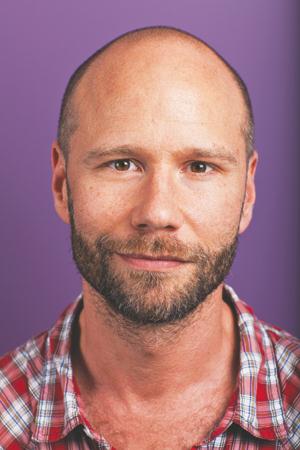“I began volunteering 11 years ago,” says Shane Patey, who is moving to a new position at PWA after being the therapeutic care coordinator. “I had just finished my undergrad in environmental sciences at Waterloo, and my thesis was a guide to alternative therapies for people with HIV. I was also a food stylist, so the Pie in the Sky fundraising program was a natural fit, and I chaired it for five years. When the role of therapeutic healthcare coordinator was created, I applied.”
Patey worries that some of the services he oversaw are “programs that get seen as extraneous. Haircuts, massage, acupuncture, a shamanic healer — all those things have a high cost out in the community. For someone on disability, this actually increases their income by providing a service they don’t have to pay for. But it’s priceless to have someone feel good about their appearance, to have someone looking after them. That connecting with a service provider, especially something like massage, helps lift the feelings of being someone who is feeling untouchable.”
The practitioners are volunteers who find they get as much out of the encounters as the clients. “We partner with five professional schools, and we provide space for their clinical time. It validates our clients, but the practitioners also have contact with PHAs, and their perceptions are blown wide open. When tasked with growing this program I wondered how I was going to get people who do this for a living to do it for free. But most of them want to be healers. They get to help manage cancer, tinnitus, mobility issues — it gives them a rich pool of experience. Being HIV-positive makes our client, but the clients can access for any reason. One client was bound to a scooter and after acupuncture and massage could stand up. He said, ‘I can shower alone.’ His dignity was returned.”
PWA partners with the Sherbourne Health Centre naturopathic clinic, which Patey believes is important. “We’re not adding more pharmacology but addressing the issues. People save on painkillers, and the comfort of not having to worry about a bout of diarrhea or having your energy back puts life in a more manageable place. Just managing the HIV is a challenge, and it can get in the way of thinking about their overall health. Those on a subsistence income can think about their health in a bigger way.”

 Why you can trust Xtra
Why you can trust Xtra


